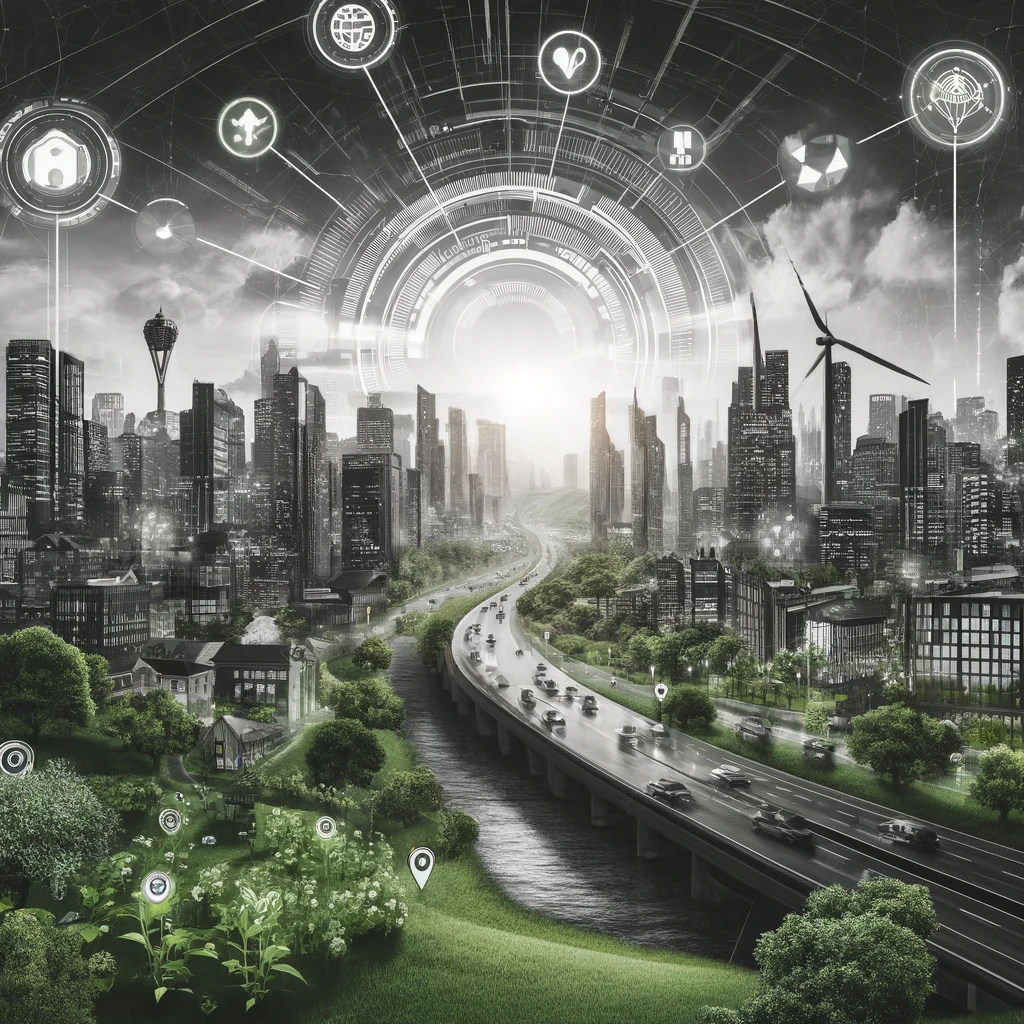The global push towards environmentally sustainable smart cities is a testament to the burgeoning role of Artificial Intelligence (AI), the Internet of Things (IoT), and Big Data in crafting the urban landscapes of the future. This evolution marks a pivotal shift in urban planning and development, blending the realms of technological innovation with environmental stewardship.
The rise of smart cities, characterized by their use of digital technologies to enhance performance, well-being, and reduce costs and resource consumption, is now intersecting with sustainability goals to address pressing challenges such as climate change and environmental degradation. The concept of environmentally sustainable smart cities emerges as a harmonious fusion of these objectives, leveraging AI, IoT, and Big Data to foster urban environments that are not only technologically advanced but also green and sustainable.
AI, IoT, and Big Data
At the heart of this transformative approach are AI, IoT, and Big Data, technologies that offer unprecedented capabilities in monitoring, analyzing, and managing urban environments. AI’s predictive analytics, IoT’s interconnected devices, and the extensive datasets provided by Big Data applications are reshaping how cities approach sustainability. Together, they enable more efficient resource use, improved energy management, and enhanced decision-making processes that are essential for sustainable urban development.
Noteworthy Developments and Applications
Recent years have seen a marked increase in the deployment of these technologies across various sectors of urban management. For instance, AI-driven predictive maintenance systems are being used to anticipate and address infrastructure issues before they escalate, thereby minimizing environmental impacts and conserving resources. IoT devices are facilitating real-time environmental monitoring, enabling cities to swiftly respond to pollution levels, water quality issues, and energy consumption patterns. Similarly, Big Data analytics are providing insights into urban dynamics, helping cities to implement more effective waste management, transportation, and energy distribution strategies.
Integration and Innovation
The journey towards environmentally sustainable smart cities is an ongoing one, characterized by continuous integration of emerging technologies and innovative solutions. The critical challenge lies in effectively combining the capabilities of AI, IoT, and Big Data to not only enhance urban functionality but also ensure that cities become greener, more sustainable spaces.
Cities are increasingly recognizing the value of these technologies in achieving sustainability goals, leading to the proliferation of initiatives aimed at creating smarter, more environmentally friendly urban environments. The focus is on developing solutions that not only address immediate urban challenges but also anticipate future needs, ensuring that cities remain resilient, sustainable, and livable for generations to come.

